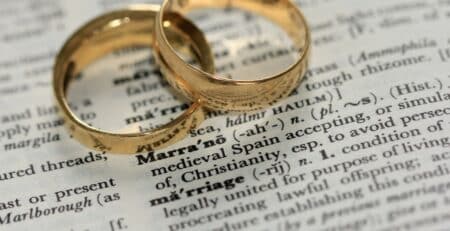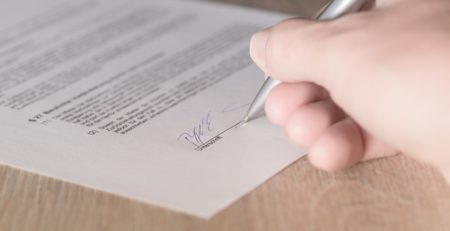Contesting a Will Due to Fraud or Forgery
We also have expertise with various other options for contesting a Will, including:
Contesting a Will Due to Fraud or Forgery
If a Will has been forged or has been subject to fraud, then it cannot be deemed legally valid, and its terms cannot be executed. It may be possible to contest a Will on the grounds of fraud or forgery, depending on the available evidence. This is something our contentious probate solicitors can help you with.
At Tinsdills Solicitors, we have built up substantial experience and expertise in a wide range of legal disputes. As such, we are well positioned to support you with contested Wills, including in relation to matters involving fraud or forgery. We will be able to support you through the entire process of making or defending a claim, taking every step to ensure you secure a positive outcome.
Our team always look to negotiate an amicable settlement wherever possible, reducing the potential for disruptive and time-consuming disputes. However, this does not mean that we will simply settle for the first or most convenient option. If court proceedings are required to secure a positive outcome, we will be with you every step of the way.

Our team also have a wide range of expertise in other matters related to contested Wills, Trusts and Probate. Find out more about these services here.
To discuss contesting a Will due to fraud or forgery with one of our contentious probate solicitors in Hanley, Leek, Newcastle-Under-Lyme or Sandbach, please call 01782 652300 or use the enquiry form on the right hand side of the page.
Our Expertise with Contesting Wills Due to Fraud or Forgery
If you have been omitted from a Will, or the terms of a Will you were due to inherit from have changed without an obvious explanation, you may be able to bring forward a claim of fraud or forgery, depending on the evidence.
Fraud or forgery may have occurred where it can be proven that a document has been falsely signed, or its terms have been changed by someone other than the testator (or someone officially acting on behalf of the testator).
Allegations of Will fraud or forgery are very serious and, as expected, require indisputable evidence to be proven. This is where our contentious probate solicitors can support you, reviewing the situation as a whole and collating evidence to suggest that there is evidence of foul play which would render the Will invalid.
If you are a beneficiary, learning that someone intends to lodge a claim on the grounds of fraud or forgery can be incredibly challenging. However, in these situations, it will be necessary to defend your inheritance rights.
So long as the formal procedures were followed during the creation or amendment of a Will, issues of fraud and forgery should have already been accounted for, meaning that it may not be a valid reason to deem the Will invalid.
When defending a claim of fraud or forgery, our contentious probate solicitors can collate and evaluate all of the relevant information to support the application of the Will. We will take all necessary steps to demonstrate that fraud or forgery did not take place and that the Will is legally valid.
Meet our Dedicated Contested Will Team
Get in Touch With our Contested Will Solicitors Today
Do you want to discuss a contested Will case? We have expertise in this area and more.
With a dedicated team on hand to take you through every step of the process, you can rest assured that we will provide you with the best chance of getting the outcome you deserve.
To arrange an appointment with one of our contentious probate solicitors in
Hanley,
Leek,
Newcastle-Under-Lyme, or Sandbach,
please call 01782 652300 or use the enquiry form on the right hand side of the page.
Fraud and Forgery FAQs
It is beneficial to look at what both fraud and forgery mean separately in the context of a Will.
A fraudulent Will is where a degree of deception or dishonesty is used to manipulate the terms of the Will for personal gain or to directly damage another individual. While this is quite a far-reaching description, it often includes actions such as:
- Impersonating a testator to execute the terms of a Will
- Misleading a testator into thinking they are signing a different document
- Destroying or hiding a Will to benefit from a previous Will or the rules of intestacy
Forgery can occur where a Will, or the testator’s signature, has been written by someone posing as the testator. It is a legal requirement for a Will to be signed by the testator.
Identifying where fraud or forgery may have taken place can be difficult, but there are a number of potential signs which could point towards it having taken place. For example, there may be issues with the legitimacy of the Will where:
- The Will benefits someone unexpected
- The Will was made shortly before the testator’s death
- The handwriting or signature is not recognisable
- The provisions in the Will are very different to previous Wills
- A Will was found somewhere other expected
- Expected beneficiaries are left out of the Will, or inherit less than expected
If following a dispute, it is found that fraud or forgery took place, then the Will is deemed invalid, and a previously valid Will is used in its place. If there is no other legally valid Will, then the rules of intestacy are used instead.
Latest News
Visit the Tinsdills blog for great content about the legal sector and beyond.














